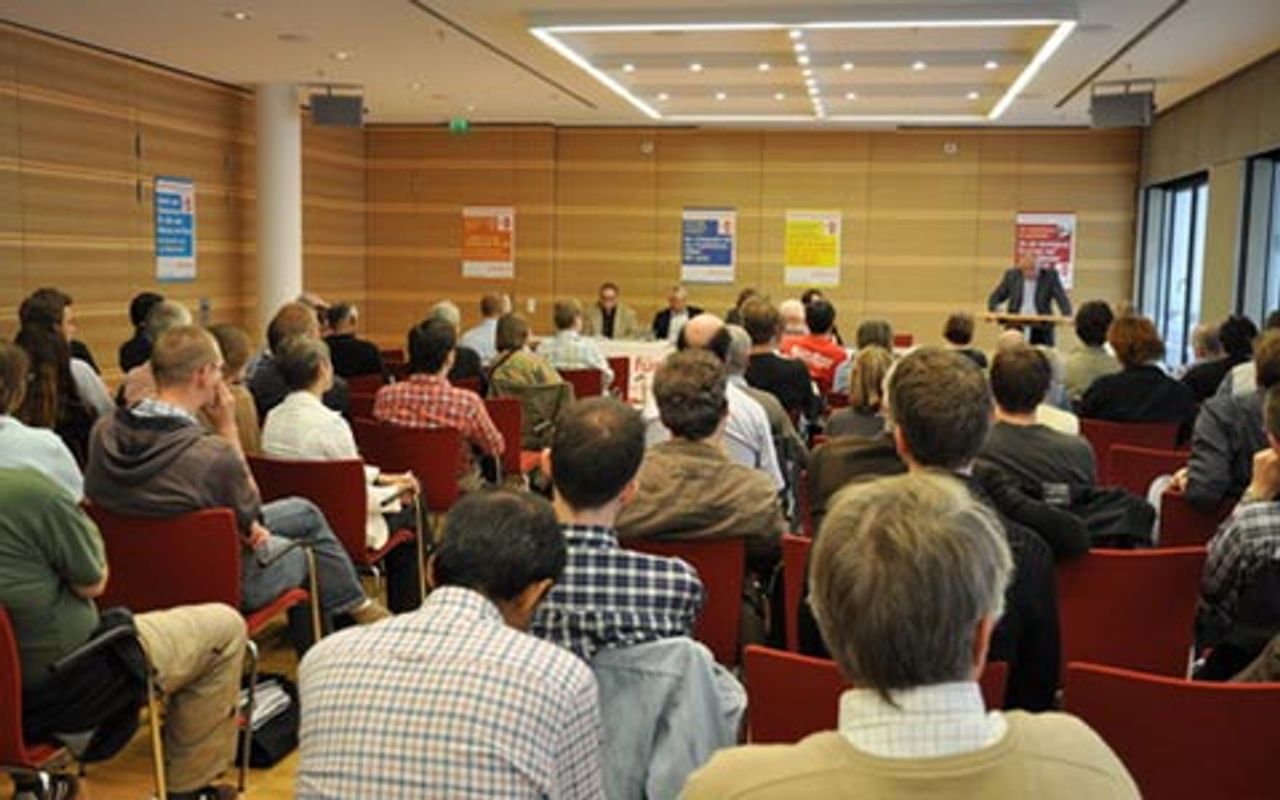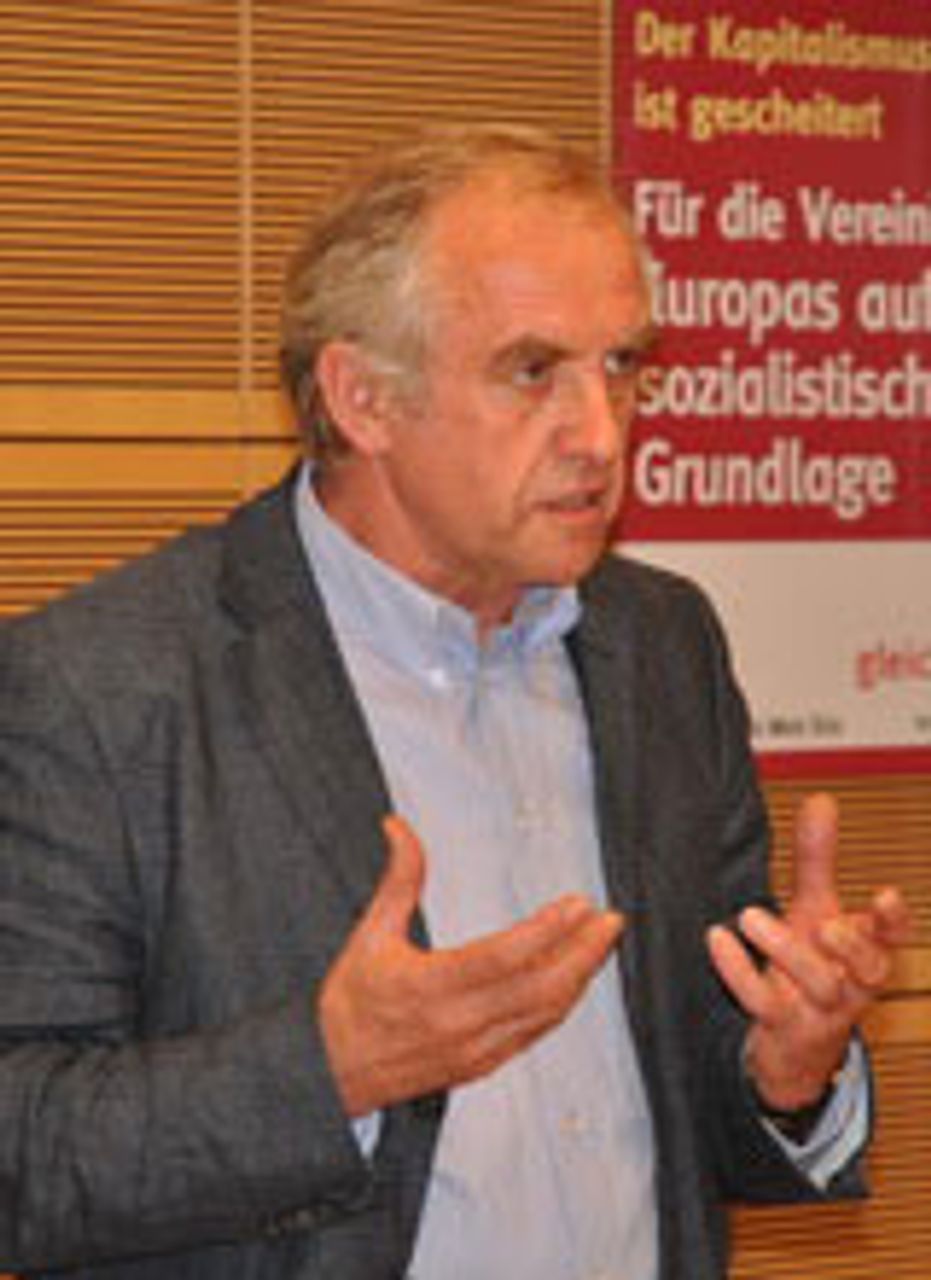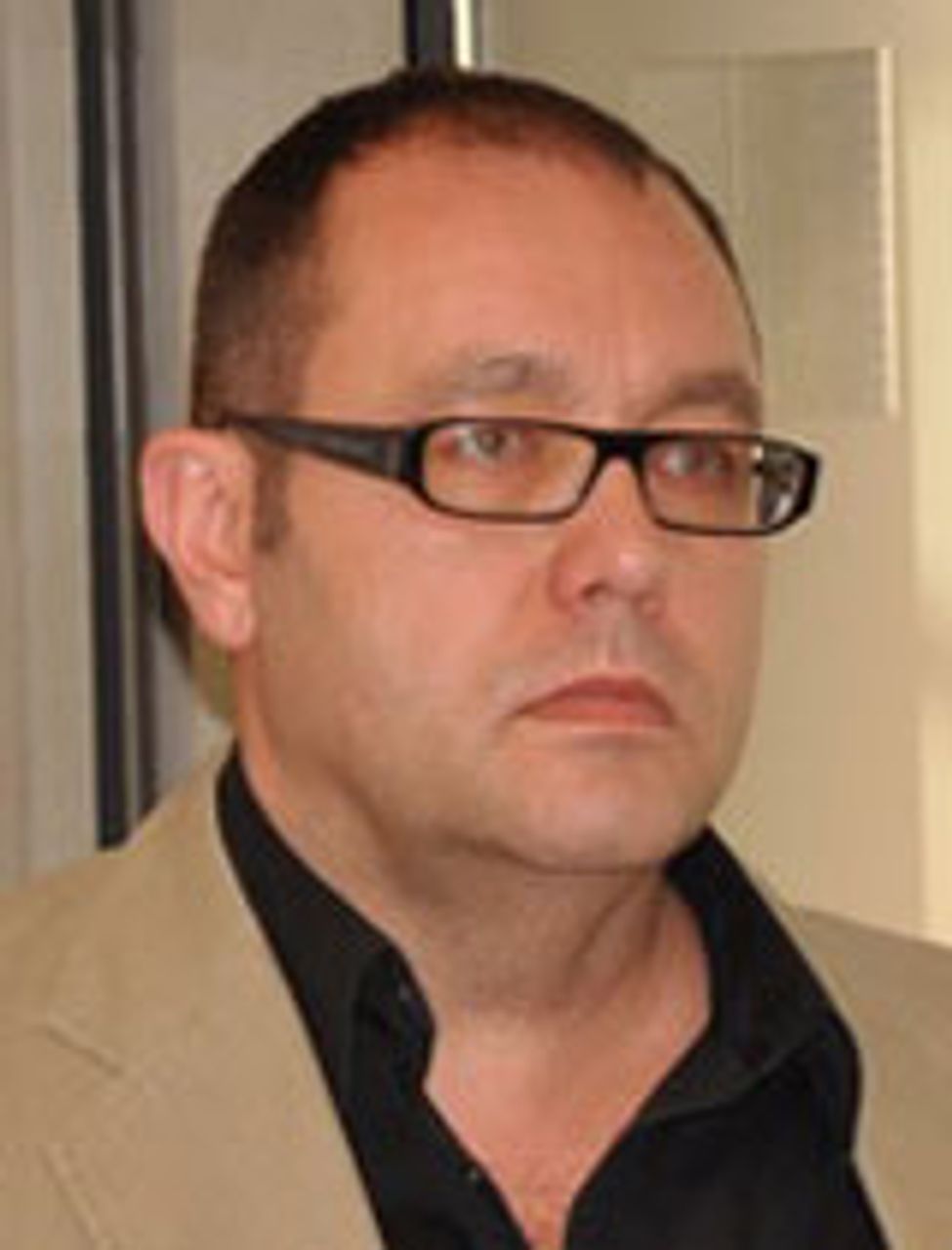Last Saturday, the Partei für Soziale Gleichheit (PSG, Socialist Equality Party) ended its election campaign with a successful rally in Berlin. About 100 supporters came to discuss political developments and a “socialist answer to war and crisis” with representatives and candidates of the party.

In the weeks leading up to the rally in Berlin, tens of thousands of flyers and election manifestos were distributed, and hundreds of posters were put up. PSG supporters held many discussions with workers and young people at dozens of information stands organised in front of supermarkets, outside libraries, at factory gates and at job centres.
 Ulrich Rippert
Ulrich RippertAt the meeting, PSG chair Ulrich Rippert stressed in his speech that the PSG was the only party in the Bundestag (federal parliament) elections speaking openly about what working people will confront after the polls close. Unemployment will rise drastically, social insurance schemes will be plundered and social security benefits cut.
“But none of this was a topic for conversation in the election campaign” Rippert said. “All parties promised to reduce taxes, to create jobs or increase social expenditure. This charade was played most clearly by the Left Party, which claimed that in these times of capitalist crisis, welfare benefits could be increased by 500 euros, pensions raised and wealth redistributed—all without workers intervening actively in political events.”
Rippert explained that the capitalists would exploit the crisis to put an end to workers’ social and democratic rights. The new government will implement harsh social attacks. The significance of the PSG election campaign consisted in preparing workers for this confrontation and discussing a socialist perspective.
PSG executive committee member Christoph Vandreier spoke about the war in Afghanistan and exposed the position of the Left Party, which refuses to describe the war as a colonial war. The Left Party reacted to the massacre in Kunduz by dropping its demand for an immediate withdrawal and signalled its willingness to discuss an “exit strategy”. “The PSG openly points to the imperialist character of the war”, Vandreier said. “This war is not directed against terrorists or for human rights, but is a campaign of colonial conquest. It is the continuation of capitalist policy by violent means.”
In his speech, executive committee member Peter Schwarz dealt particularly with the Left Party. This is not a “centrist organization, moving to the left under the pressure of the masses”. Rather, the Left Party is a state party, which engages in populist demagogy. Its membership structure proves that the combination of the Party of Democratic Socialism and the Election Alternative (WASG) was essentially a fusion of two bureaucratic apparatuses, initiated by the ruling elite.
Schwarz underscored the significance of this question in light of the history of the workers’ movement in Germany. Already at the time of the First World War, the centrism of the Independent Social Democratic Party (USPD) was a greater problem than the rightwing SPD leaders. Centrist tendencies had always played an important role in Germany, betraying struggles at the crucial moment.
 Chris Marsden
Chris MarsdenThe National Secretary of the Socialist Equality Party (SEP) in Britain, Chris Marsden, also addressed the meeting. Marsden concentrated on the international effects of the economic crisis.
“Whatever the claims of signs of a recovery, and of green shoots springing up, the global economy is in the midst of the worst systemic crisis since the 1930s,” Marsden said. He reviewed the economic and political situation in Britain, and noted that the British ruling class is seeking to force workers to pay for the bailout of the banks.
Marsden’s speech centered on the growing tensions between the great powers, and in particular between Germany and Britain. “That is why the party that the working class must now build has to be internationalist to the core,” Marsden said. “It must set out to unite the working classes of Europe with the brothers and sisters in the United States and internationally, setting its face against the noxious poison of nationalism and xenophobia.” He concluded by calling for an international socialist movement of the working class.
After a lively discussion regarding the question of war and the demand of the PSG for an immediate withdrawal from Afghanistan, a very good collection was held, which successfully completed the party’s 7,500 euro election fund. On Sunday, the PSG then received 1,423 votes for its candidates in Berlin, nearly twice as many as in the European elections three months earlier.
